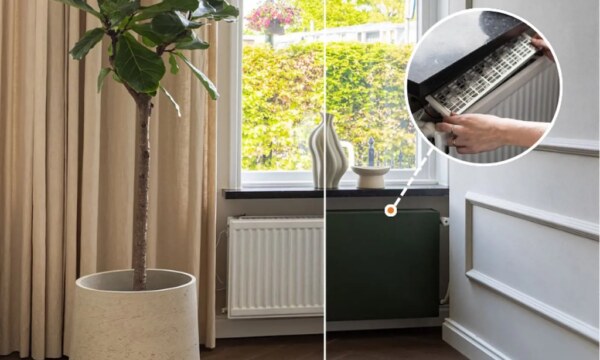Simple habits that support a steady lifestyle

Identify the one habit that often comes to mind for improvement but is repeatedly postponed – a common experience. Examples include insufficient sleep, skipping breakfast, or the intention to stretch after work that ultimately goes unfulfilled. In a fast-paced environment where urgency prevails, foundational routines that promote stability are frequently neglected. This blog presents straightforward, actionable habits designed to provide structure and support, particularly during periods of heightened activity.
Start with the habits that show immediate return
Not all healthy habits require long-term commitment to yield results. Certain practices provide immediate, stabilising benefits that can quickly reset daily momentum. Drinking water before the first coffee, walking while listening to the news, and setting an alarm to signal wind-down time instead of wake-up time are simple actions. Consistent repetition of these habits helps establish a rhythm often lacking in daily routines. Major lifestyle changes are not necessary; instead, reinforcing small acts of stability can make the rest of the day feel more organised and less chaotic.
This approach is particularly effective for foundational self-care, which is often neglected. Oral health represents a key aspect of this. In periods of overwhelm, there is a tendency to postpone dental visits until issues become urgent. However, ongoing maintenance is crucial, supporting not only dental health but also mental clarity and physical confidence. Scheduling appointments proactively, before problems develop, demonstrates steadiness – a quality exemplified by Dental Perfection. Recognised throughout Burton and Derby, this practice integrates preventative care with individualised attention, providing treatments such as Invisalign, smile makeovers, veneers, and teeth whitening to support both function and aesthetics. Regular dental visits can be reframed as an investment in overall well-being, rather than a chore. Addressing fundamental self-care needs enables a more structured and confident approach to daily life, reducing the need for reactive measures.
Habits that reduce long-term disruption create short-term calm. Treating oral health as a pillar, rather than a chore, frees up bandwidth to focus on the rest of the routine without nagging discomforts causing distraction.
Build a routine that survives bad days
Planning routines often centers on an ideal state marked by energy and focus. However, the true measure of a steady lifestyle lies not in performance during optimal conditions, but in the resilience displayed when circumstances become challenging. The key is to design habits that can adapt and endure under pressure.
That means redefining what counts. Ten minutes of movement still counts. Eating something simple and home-prepared still counts. Skipping social media before bed, even just once a week, still counts. Lower the threshold without lowering the value. The most sustainable routines don’t require inspiration – they just require access.
Anchoring the day with a small, unchanging routine can provide stability amid fluctuating circumstances. A single cue – such as brushing teeth and flossing properly or taking five quiet minutes after lunch – can serve as a stabiliser. When schedules collapse, this anchor demonstrates that not everything has fallen apart.
Know the difference between balance and pace
Modern life frequently advertises balance as the ultimate goal, often overlooking the importance of pace. On some days, energy may allow for structured routines; on others, only basic tasks may be manageable. Rather than pursuing perfect symmetry, maintain a steady pace that aligns with current capacity.
Achieving this requires ignoring wellness trends that promote extreme habits. Ice baths, full-body workouts, green juices, or elaborate morning routines are not prerequisites for well-being. Instead, prioritise repeatable actions that can be maintained even during periods of fatigue. Examples include making the bed, conducting a weekly grocery shop to prepare for the days ahead, or brushing and flossing teeth with care rather than haste. Consistently performed small actions carry greater significance than occasional intense efforts.
Don’t let the devices run the day
Lifestyle habits cannot be discussed without addressing the pervasive influence of technology. Phones function not only as distractions but also as pace-setters. Checking email or scrolling through social media as the first activity of the day does not constitute starting the day independently; rather, it signifies reacting to external demands.
Establishing a tech-free interval during the day can significantly change one’s sense of well-being. This interval might occur during the first 30 minutes of the morning, the last hour before bedtime, or during meals. The objective is not total disconnection, but rather the reclamation of small moments of autonomy over personal time.
Digital breaks allow other habits to emerge. Silence creates room for movement, cooking, reflection, or even rest. And in a world running on push notifications, stillness is a habit in itself.
Use the environment as a habit partner
Willpower is not a reliable tool; the environment offers greater consistency. The condition of the home, workspace, kitchen, and even bathroom influences habitual actions. Items placed within easy reach are more likely to be used, while those that are hidden tend to be neglected.
Habit design becomes practical through environmental adjustments. Place a water bottle on the desk. Store floss picks in a bag. Set reminders for appointments in visible locations. Reducing the number of steps between an individual and the desired habit increases the likelihood of success. When the environment cues the behaviour, reliance on motivation diminishes. This process facilitates the formation of lasting habits.
Recognise that maintenance is momentum
We tend to associate progress with novelty – new diets, new routines, new gear. But a steady lifestyle is about maintenance. It’s not glamorous, but it works. And it’s what separates long-term wellness from short-lived health kicks.
This mindset reframes everything. Sleep is not merely rest – it is maintenance. Cooking is not only nourishment – it is rhythm. Brushing teeth thoroughly, scheduling dental cleanings, and monitoring mental state may not appear dramatic, but each action preserves foundational well-being.
Proper maintenance reduces daily friction. Backtracking or recovering from preventable problems becomes unnecessary, allowing for continuous forward progress. The pace may be slow or quiet, but advancement continues nonetheless. In a culture that prioritises hustle and reinvention, steadiness functions as a form of rebellion. Those who master steadiness are more likely to build resilient lives that endure disruptions. Simple habits enable this stability. Over time, these habits cease to require conscious effort and become second nature.
The editorial unit

























Facebook
Twitter
Instagram
YouTube
RSS